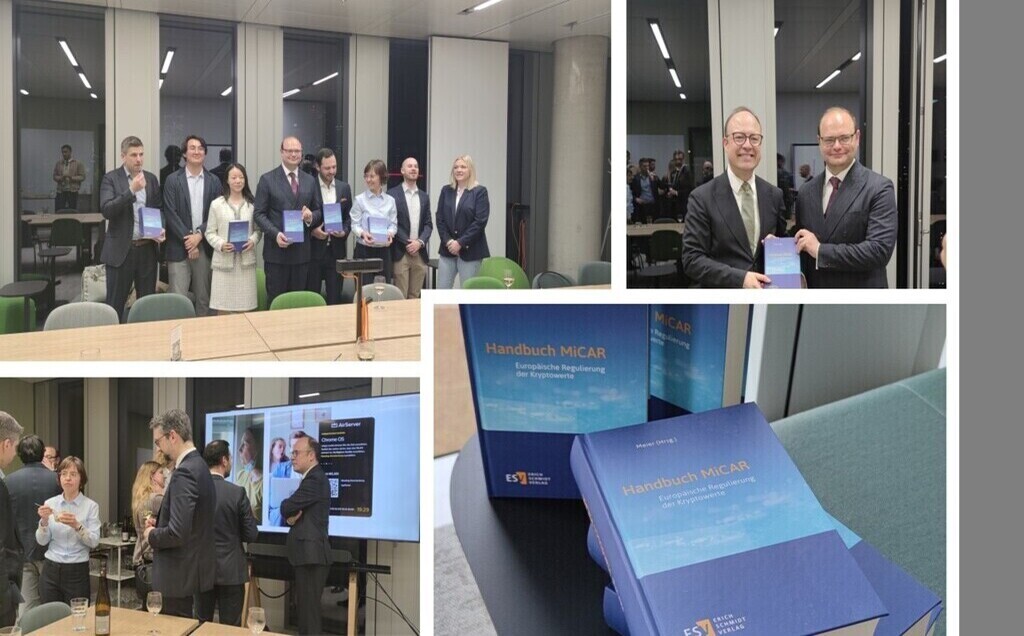The professional trading of crypto assets in Germany for the trader’s own account in many cases requires an authorization of BaFin for proprietary trading. According to German regulatory law, proprietary trading may occur in four different variations. The so-called Market Making e.g. is applicable in cases, in which a company continuously offers the purchase and sale of crypto assets on regulated financial markets by utilization of its own funds at self-determined prices and for its own account. Services of a service provider which offers its clients the trading of crypto assets, respectively facilitates the clients access to the trading of crypto assets may also be subject to authorization as proprietary trading. Not as widespread in crypto trading is the application of high frequency algorithmic trading techniques at organized trading venues which may also require the respective company to acquire an authorization for proprietary trading. Finally, there is the proprietary trading variation of systematic internalization for the field of the so-called Over-the-Counter (OTC) trading. This may be applicable, if operators regularly conduct organized and systematic trading with clients for their own account to a significant extent and outside of an organized market or multilateral trading facility. Systematic internalization also refers to financial instruments and therefore generally also to crypto assets. Nevertheless, it is questionable if the variant of systematic internalization can be fulfilled while trading with crypto assets.
Only the Heavyweights in OTC-Trading Shall be Regulated
OTC-trading is characterized by the fact that it occurs outside of strictly regulated and supervised exchanges. Since there is a large number of actors which in some cases only trade financial instruments to a rather small extent, not all actors in OTC trading are required to be supervised. The law stipulates specific thresholds which must be exceeded by providers of OTC trading of financial instruments in order for them to qualify as systematic internalisers. The question if a provider actually conducts trading to a significant extent in the abovementioned sense is determined either by the share of the OTC-trading volume of the provider in relation to the total trading volume of the provider for that specific financial instrument or by the ratio of the OTC-trading volume of a provider to the total trading volume of the provider for that specific financial instrument within the European Union. This threshold may also be exceeded by providers trading crypto assets OTC. Furthermore, the law also stipulates that systematic internalization can only be fulfilled if the pre-set limits that are set for the purposes of determining what constitutes frequent systematic and substantial OTC trading are exceeded to a considerable extent. Those pre-set limits are laid out in the organization requirements for investment firms in articles 12 to 17 of the EU regulation no. 2017/565. However, the EU regulation does not define the term crypto asset since this term is only defined and regulated on the national level and instead merely defines thresholds for financial instruments of the categories recognized by the MiFID regulation. There are no provisions regarding crypto assets in this regulation. The stipulated requirement as set out in German regulatory law that the thresholds in accordance to the EU regulation Nr. 2017/565 must be exceeded can therefore not be fulfilled in cases involving the trading of crypto assets.
Is regulated Systematic Internalization Possible with Crypto Assets?
The absence of thresholds for the OTC trading of crypto assets in the EU regulation Nr. 2017/565 could argue for the position that systematic internalization in the sense of the German supervisory law cannot be fulfilled in this field. Likewise, it could be argued that requirements regarding the exceedance of thresholds set by the EU regulation in cases involving crypto assets are not applicable, since there is no specific regulation. In the latter case, the scope of the terms of frequent systematic trading and considerable trading extent in OTC-trading with crypto assets would not be definable. In light of these legal uncertainties an interpretation decision by BaFin would be helpful and necessary. Either way, most providers that would be affected by this problem will be obligated to obtain an authorization for proprietary trading since they are usually providing proprietary trading as a service for third parties. That being said, the clarification of this legal question would be very welcome since a qualification as a systematic internaliser would go hand in hand with additional regulatory obligations for the affected company. In order to circumvent legal uncertainties those affected by this problem could voluntarily comply with the regulations for systematic internalisers and apply for the respective authorization with BaFin.
Attorney Lutz Auffenberg, LL.M. (London)
subscribe to Newsletter






